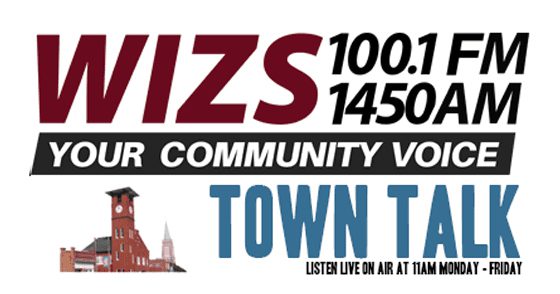The Veterans Life Center in Butner is a nonprofit agency that helps 21st century veterans with the skills and support necessary to become self-reliant and to become productive members of the community.
As part of the ongoing series “Former Active Duty, Still Boots on the Ground” segment of Town Talk, Phyllis Maynard and John C. Rose spoke with two men who work at the VLC to learn more about what it offers former military personnel.
VLC Executive Director John Turner is a veteran of the U.S. Army and Coast Guard. Martin Woodard is the VLC program director who served in the U.S. Air Force and has a long career in counseling and is affiliated with the UNC School of Medicine and the NC Division of Mental Health.
The VLC services offer a unique approach in several ways, Turner said. Firstly, it’s designed especially for 21st century veterans – which is defined as those who served in Iraq or Afghanistan. Secondly, the veterans receive care, counseling and other support from fellow 21st century veterans, who understand the particular challenges those vets face. And thirdly, the services are provided in a caring environment that cares for the whole veteran. We talk about goals, and opportunities and the future,” Turner said. “That’s what sets us apart.”
The VLC is a residential program that helps veterans be proactive in their recovery. Woodard said by beginning with a culture of respect and a holistic approach to care, veterans experience a positive support system that promotes that self-reliance.
“We strive to build a foundation,” Woodard said, that incorporates physical health, behavioral health and mental health. A veteran who suffers from PTSD, for example, may also have other underlying health concerns that need to be addressed as well. Or a veteran with substance abuse problems may also need counseling for having suicidal thoughts.
That’s another unique asset that the VLC has – it’s located just a few hundred yards from the R.J. Blackley Alcohol and Drug Treatment Center.
Having partnerships with other agencies, from substance abuse treatment centers and the VA is key to helping veterans get back on the right path, the men noted. The facility also is close to the South Campus of Vance-Granville Community College, where participants can take classes and find a career.
Woodard said the investment comes from all sides, including from the residents, who are learning how to deal with untreated or unresolved issues that stemmed from the military. They are learning how “to re-engage in society in a way they deserve,” Woodard said. Having support from the larger community is a tangible way to say “Thank you for your service.”
Just five years ago, the VLC was nothing more than an idea, Turner said. A working group met a couple of times a month, put together a vision for a facility whose primary goal would be to give veterans an outcome of self-reliance.
Then it was a matter of working backward to get all the pieces to come together. The result is a nonprofit VLC is a collaboration of state and local groups and the VA to be able to provide resources alongside the other existing services – all with a similar goal: serving the veterans who have served their country.
“We value partnerships,” Woodard said. “No one program can meet the needs by itself.”
The VLC program is for veterans with honorable discharges. But whether they ultimately are accepted into the program or not, Woodard said he wants veterans to know two things: they will not be judged and their diagnoses don’t have to define them or affect what they can achieve.
According to Turner, “If they’re calling in, they want to be heard and understood.”
“If they call us, we’re going to do our best to give them hope,” Woodard said.
Visit www.vlcnc.org to learn more. Call VLC at 919.803.5516.
CLICK PLAY!
